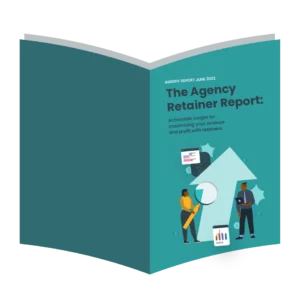At Nimbus, we’re often asked the best way for agencies to structure hosting in order to get the best outcome for themselves, and their clients. When should you put multiple clients on a single server? When is it best to place a single client on a single server? What do you charge for web hosting when you have multiple clients grouped on a single server, versus the amount for a single client on a single server? Getting this right from the outset will pay dividends as you scale your agency and grow your hosting provisions.
Why the structure of your hosting matters

We see all too often that agencies buy a single hosting package, put all of their clients onto it, and charge one flat fee (or worse, give it away for free), regardless of those clients’ size or type.
This presents not only a missed opportunity for additional revenue, but also a significant risk for both end-client and agency. That’s because hosting your lower-tiered clients alongside those higher-paying ones puts them both at risk from the other.
Firstly, if a smaller client’s site is hacked or compromised, it could take down the rest of the sites on the server along with it. While, should your higher-paying client get a traffic spike, it could impact the performance of other clients’ sites on the server.
It may also be the case that you have clients who are paying for maintenance and security updates, and those that aren’t. If they’re all sitting on the same server you’re putting the clients whose security is your responsibility at risk.
Spending time on the structure of your web hosting retainers serves you in more ways than just increased security, too – you can also make money from your hosting partnership by showcasing the value to your clients. For example, splitting-out your big spenders and your low means you’re able to charge more for premium hosting, all while maximising profit from your smaller clients on a lower-spec server.
You could even go further, and place your smaller clients across multiple smaller servers – minimising risk even more, at very little additional cost.

Make the most of your agency’s retainers.
Use our insight report to help you reimagine your retainers and raise your profits.How to set up your servers: three approaches
There are three standard approaches to consider when establishing your web hosting structure – each with their own pros and cons. We’ve outlined what you need to know:
1 Multiple clients per server
What it is: Buying large servers, and placing multiple clients on them.
When you purchase a server, you’ll usually be told the ideal number of sites to host on it based on the size of those sites and the amount of resource they’ll each need. Under this approach, once you reach the site limit you’d simply take out another server (of any size) and start to use this for overflow sites.
Depending on your agency size and client volume, we’d recommend having no more than 50 clients on a higher-spec server – while spreading them across multiple smaller servers would help to ensure better performance and security.
Pros:
- The cheapest approach (when server is at full capacity)
- Easy to manage, as all clients are in one place
Cons:
- Security risk from compromised sites within the same server-space
- Site performance potentially affected if one client eats up the resource
- Revenue risk with any lost clients, as you’re still paying for the larger server
2 Single server per client
What it is: Buying a server that’s specced-out specifically for each individual client.
While it may sound complex to host each individual client on their own server, doing so actually opens both you and your clients up to a range of potential benefits and growth opportunities.
At Nimbus, we actually see a number of clients take this approach in order to maximise revenue and profit; bundling together a server and hosting within a retainer agreement. Giving clients their own individual server means that they are free from any risk posed by other sites on the same server, and the server itself can be specced to their requirements.
That’s not to mention that, should the client leave the agency, they can close that server down without having to worry about the additional revenue they may need to make up, as they would if the client was on a shared server with multiple clients.
Pros:
- The best practice for revenue generation – ability to charge 100%+ markup for bespoke services
- Best security and performance protection for the client
- More flexibility – you can easily add and cancel servers with client turnover
- Agency profit protection, as mark-up is not shared between multiple clients who could leave
- Clients benefit by having a server of their own specced to their requirements
Cons:
- May price-out low-spend customers
3 Tiered/Hybrid servers
What it is: A mixed offering of individual and shared servers, allocated by client spend and needs.
If you have a range of different sized clients, with different budgets and server requirements, it might make the most sense for you to offer a hybrid web hosting structure. This way, you can offer individual servers for your higher-value or eCommerce clients, and have just one or two larger servers for hosting multiple smaller or lower-value clients.
You could also consider splitting your clients in terms of those who pay for maintenance, and those who don’t. This ‘premium’ versus ‘base’ server package structure makes upselling onto retainers with a higher profit margin much simpler; tiered hosting allows you to place the clients who don’t see the value or are more price-conscious onto a multiple-client server in order to maximise profit.
Tiering your hosting packages also enables you to better explain the benefits to those clients who value hosting – and experience has shown that providing clients a range of options offers them peace of mind that you’re committed to providing them the best hosting set-up for their needs, a detail that puts you above the competition.
Pros:
- Ability to provide bespoke services for higher-value clients
- Maximises agency profit from lower-value clients
- Structuring can fall in-line with how accounts are structured in-house
- Intuitive and scalable upsell opportunities
- Increased client peace of mind, with proof of agency consideration
Cons:
- Security risk still inherent for the clients on the shared servers
How to upsell hosting packages

First things first: you should be charging a markup on your web hosting regardless of your approach to servers. Good web hosting provides value to your clients, and as such it’s a service you can (and should) confidently include within your retainers.
For tips on how, read our blog all about how to position and sell your retainers.
Once you’ve established a strategy that works for your business, it’s worth considering how you intend to upsell.
This is where a tiered strategy can really help you to scale – as you can begin offering premium services to those clients who have the budget to pay for it. Consider explaining to clients that when they move to your top-tier packages they get a server of their own – or, if you’ve added a couple of larger clients to it, explain the size and capability of the server.
Create a tier of packages within your retainer agreements that include related services, like website maintenance, website development, and analytics reporting, and then encourage clients to move to the next package up for a more personalised service.
More reliable hosting, more reliable ROI
If you’re not charging a mark-up on web hosting, then you’re missing an opportunity to earn revenue and profit from something that, 99% of the time, requires very little effort.
Our research into almost 200 UK agencies found that including web hosting within a retainer correlates with a 100-200% retainer price increase, with no additional time spent on delivery, or concurrent higher staffing rate.

And yet, more than a fifth of agencies (21.72%) make no profit on hosting. To maximise your ROI, tailor your offering to appeal to the full range of clients you’re working with – and then continue to develop your strategy to encourage your clients’ growth.
Of course, when you’re reselling a third-party service like web hosting, you need to know that your partner is reliable. As a hosting company designed specifically for agencies, our services are tailored to make this kind of relationship easy. With guaranteed uptime of 99.995%, a support team, and a platform that not only shows all of your servers in a single dashboard, but which you can also share with your clients.
Plus, we’ll even give you a factsheet to help you talk about us to your clients – just ask your Account Manager. It’s all part of our dedication to helping our customers make the most of our partnership.

